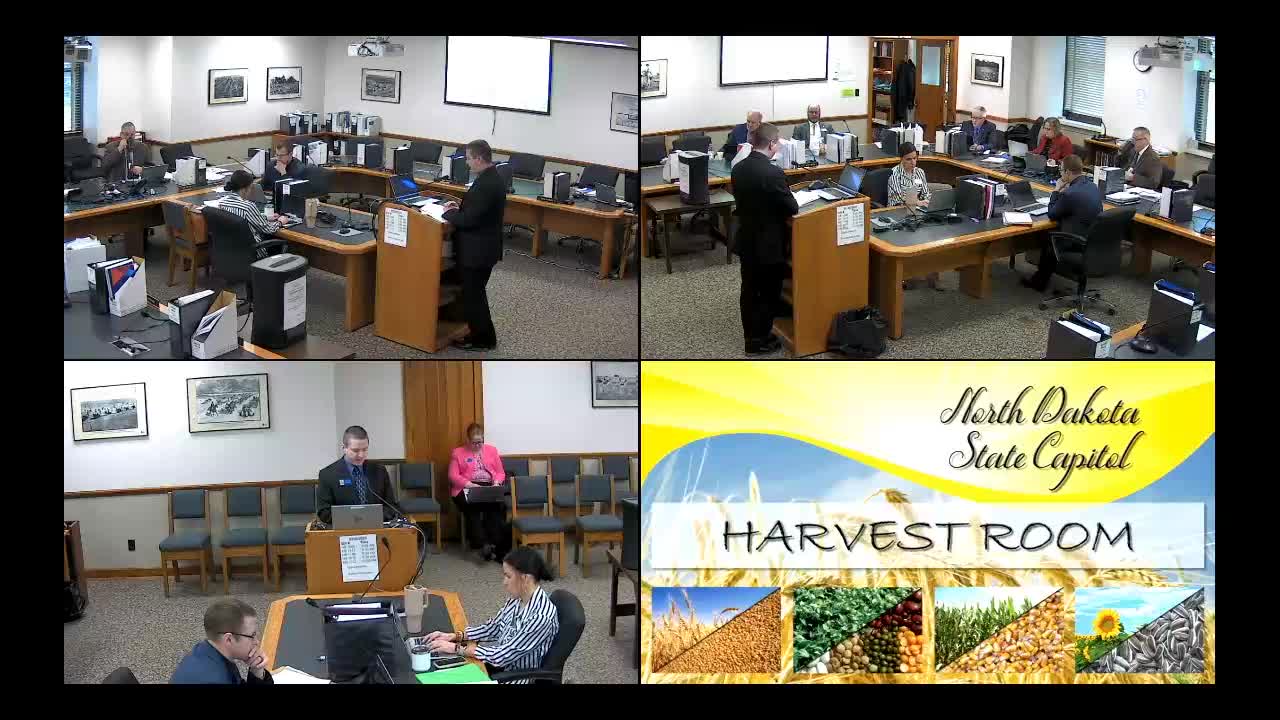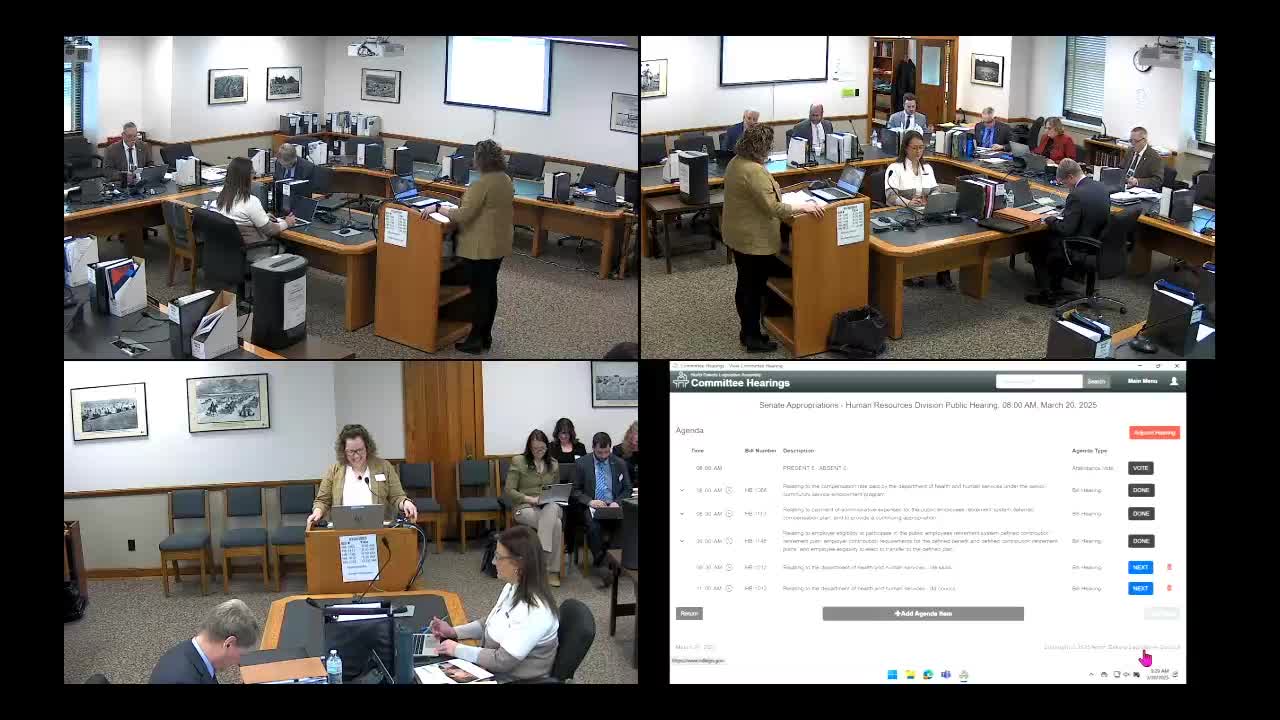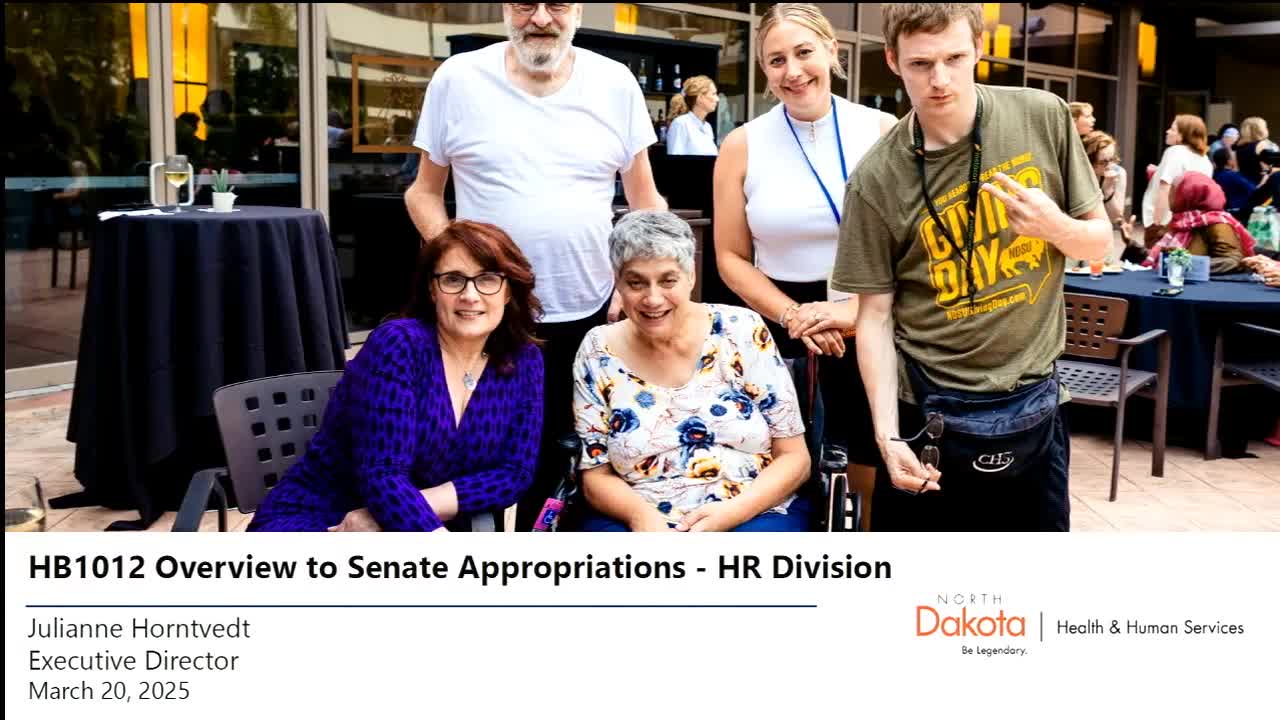Article not found
This article is no longer available. But don't worry—we've gathered other articles that discuss the same topic.

Senate panel advances several PERS bills: deferred compensation fees, defined‑contribution cleanup and budget items

Life Skills and Transition Center urges funding for roof, staff as short-term crisis care grows

State DD Council outlines advocacy, small grants and request for added staff funded by federal appropriation

